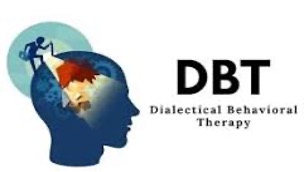An exploration of Dialectical Behaviour-informed occupational therapy in mental health, in South Africa
DOI:
https://doi.org/10.17159/2310-3833/2025/vol55no1a4Keywords:
DBT-informed approach, good health and well-being, psychologically compromised, training influence, psychological treatment approaches, third wave psychotherapeutic techniquesAbstract
Background: There is an increasing trend of occupational therapists incorporating Dialectical Behaviour Therapy (DBT) in their interventions for Mental Health care Users (MHCUs). Despite its growing popularity, there is a paucity of literature describing how DBT is used within occupational therapy practice.
Purpose: The study aimed to describe the current use of DBT-informed occupational therapy by South African occupational therapists working with clients with mental disorders.
Method: Using a qualitative design, 17 semi-structured interviews were conducted with South African occupational therapy using the DBT approach in mental health practice. An inductive thematic analysis of the qualitative information generated in the interviews took place.
Findings: Three themes emerged from the data analysis: (a) Potential challenges, (b) Why DBT? and (c) Training influences practice.
Conclusion: The themes identified in the study highlight both the potential and challenges of incorporating DBT-informed approaches within occupational therapy, emphasising the need for further research in this area.
Implications for Practice:
- It is recommended that occupational therapists who want to use DBT to inform their practice obtain a post-graduate DBT qualification.
- To remain within the scope of occupational therapy, the occupational therapist should focus their treatment plain on specific skills that the MHCUs need to participate in occupations that are meaningful to them.
- It is also very important that the occupational therapist communicate their treatment focus to other team members, to avoid confusion or overlap.
- The occupational therapist who implements the DBT approach should clinically reason from an occupational science approach. This would mean designing a client-centred treatment plan in a manner which is accessible to the MHCU, enabling specific skills that will meet the MHCU's occupational needs.
- Further research in the use of DBT in occupational therapy is needed.
Downloads
References
See PDF for full list of references.

Downloads
Published
Issue
Section
License
Copyright (c) 2025 South African Journal of Occupational Therapy

This work is licensed under a Creative Commons Attribution-NonCommercial-NoDerivatives 4.0 International License.
How to Cite
- Abstract 69
- PDF 35
- PLAGIARISM Report 23



.png)